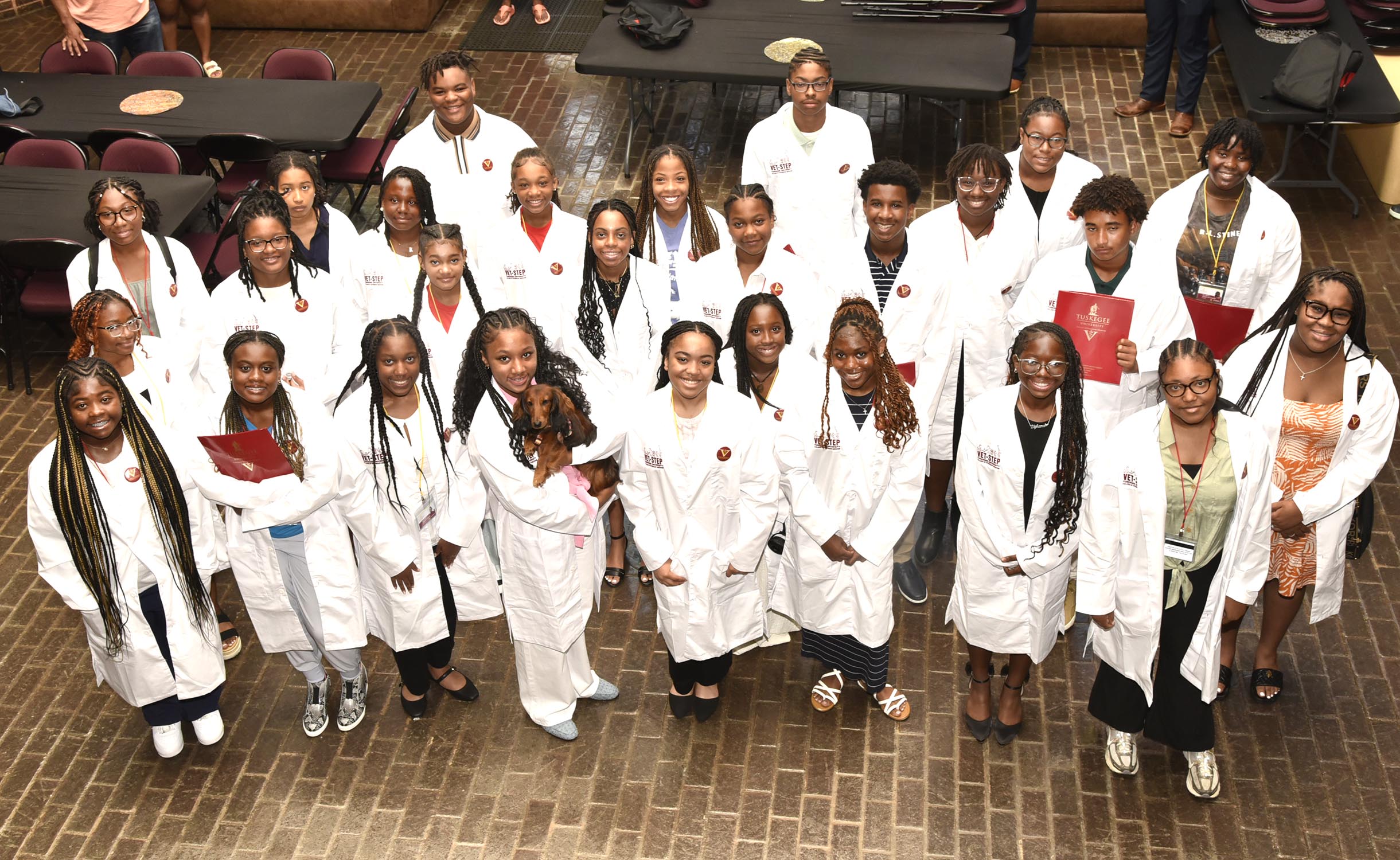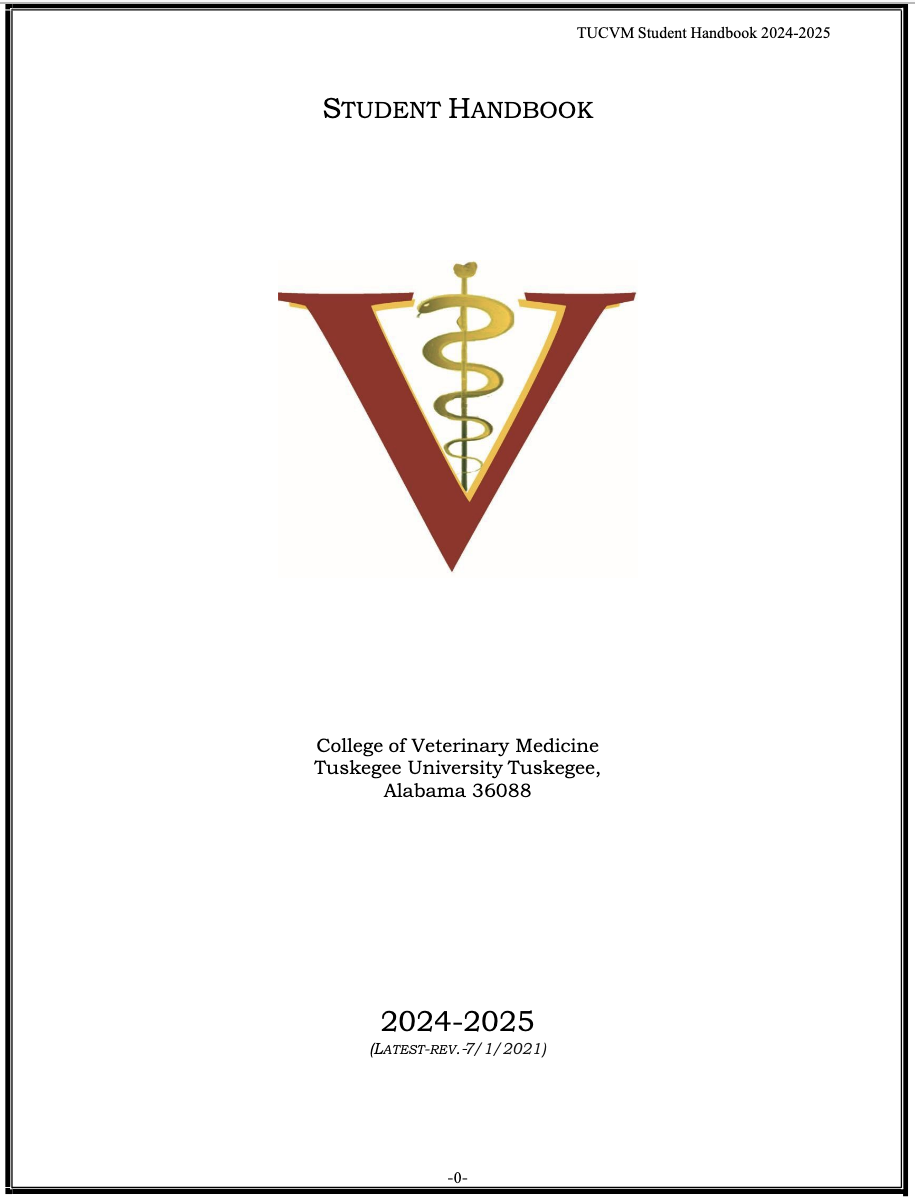Pre-Vet Programs
V-CAP
Volunteer Clinical Apprenticeship Program
The Volunteer Clinical Apprenticeship Program (also known as V-CAP) is organized by the Tuskegee University College of Veterinary Medicine. V-CAP is a collaboration between the College of Veterinary Medicine and the College of Agriculture Environmental and Natural Science (CAENS) in which students who are members of the Pre-Veterinary Medical Scholars (PVMS) Program are allowed to participate in designated clinical rotations. These two programs have been developed to enhance the recruitment and retention of undergraduate Animal Science Majors at Tuskegee University, who aspire to become veterinarians and are seeking admission into Tuskegee University College of Veterinary Medicine.
The primary goal of the program is to expose undergraduate students to the academic and clinical environment of the veterinary medical program at the College of Veterinary Medicine. The objective of V-CAP is to mentor these students by giving them the opportunity to shadow clinical faculty, become integrated into the clinical rotations with with 4th year veterinary students, and acquire hands-on clinical experience. This experience allows the volunteers to become familiar with the academic and clinical requirements, as well as the rigorous schedule of the veterinary medical curriculum, prior to applying to veterinary school.
Currently, V-CAP participants can volunteer in the following clinical rotations:
*Community Practice (Small Animal Clinic)
* Dentistry (Small Animal Clinic)
* Dermatology (Small Animal Clinic)
* Large Animal Medicine (Large Animal Clinic)
* Necropsy (Postmortem Building)
For more information about Pre-Veterinary Medical Scholars and how to join follow the link:
ABOUT THE PROGRAM
The Pre-Vet Med (PVM) Scholars Program is housed in the Department of Agricultural and Environmental Sciences (DAES), and PVM scholars are required to maintain a 3.00 GPA, participate in the Volunteer Clinical Apprentice Program (V-CAP) directed by Tuskegee University College of Veterinary Medicine (TUCVM), successfully complete the APSC 120 course, and complete the GRE after obtaining 60 undergraduate credits, be active in the TU Pre-Vet Club. The PVM Scholars Program will prepare students to fulfill academic requirements and acquire professional development desired of individuals pursuing admission into the TUCVM. Students entering Tuskegee University with a desire to pursue a career in veterinary medicine will be invited to participate in the PVM as outlined below with opportunities for early assurance of admission as well as regular admission into the TUCVM. Learn more about the TU PVM Scholars Program by CLICKING HERE.
CRITERIA and SELECTION PROCESS
Selection is based on meeting the academic eligibility requirements (minimum GPA = 3.0) with a total of 15 TU credits or 45 transfer credits for transfer students; however, applicants must also show evidence of leadership, extra-curricular activities, and community involvement. Application deadlines are September 10 and February 1 annually.
Students interested in applying may download the Scholar Application and Questionnaire below. Returning scholars should download and complete the PVM Scholar Update form below.
Contact:
Olga Bolden-Tiller, PhD
Dean and Research Director - College of Agriculture, Environment and Nutrition Sciences
Professor of Animal Sciences
110-D Henderson Hall
1200 W. Montgomery Rd
Tuskegee, AL 36088
334-727-8403 (Ph), 334-727-8552 (Fax)
oboldentiller@tuskegee.edu
WEBSITE: www.tuskegee.edu/caens
APPOINTMENT?- Click here






